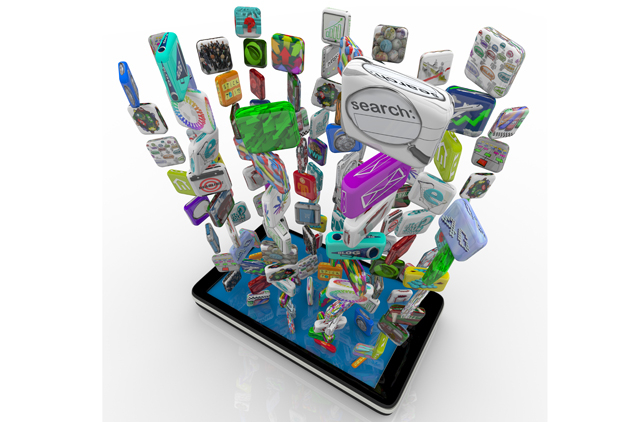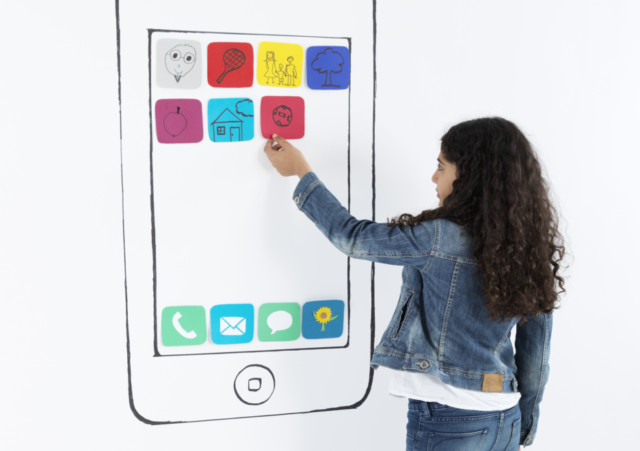London: You know the problem: you’re sitting there reading an email from a friend on your smartphone or tablet and there is a link in the message to what looks like an interesting website. So you tap on it and the web page begins to load.
And then suddenly up pops a dialogue box with text that looks like an escapee from the MySpace museum saying something like: “Hey! Why not download our cool new App?”, an invitation helpfully translated by the wonderful XKCD site as: “Want to visit an incomplete version of our website where you can’t zoom?”
Welcome to appworld. Personally, I blame Steve Jobs. He understood that since smartphones were really small computers then they could also run programs. So he set up the Apple’s app store to make this happen, and in the process ensured that the firm took 30% of everything sold on it.
It was significant also that on the day that Jobs revealed this insight to the world, standing next to him on the stage was John Doerr, one of Silicon Valley’s smartest investors, who was there to announce the setting up of a $100 million investment fund for app developers.
Which is how we got to where we are now — awash with smartphone and tablet apps, more than 90 per ent of which are rubbish. Currently, there are about 1.3 million Android apps and Apple’s app store hosts 1.2 million of the things. (Just to put that in perspective, the corresponding figures for Windows, Amazon and BlackBerry phones are 300,000, 240,000 and 130,000 respectively.)
The result is that everyone and his or her dog now have more apps than they know what to do with. I’ve seen people with 10 screenfuls of apps on their iPads, so many that they have given up swiping to try to locate one and go straight to “search” instead. I think of myself as a discriminating consumer of technology, but inspection of my iPhone tells a different story. I have 86 of the damn things and when I sat down to work out how many of them I had used in the last 14 days the number turned out to be a rather embarrassing 16.
That doesn’t mean that all of the others are useless, just that they are only useful occasionally. The excellent Collins-Robert Concise French Dictionary generally comes into its own only in the summer. Birds of Britain and Ireland is generally launched only when we’re in north Norfolk, just as the London tube app is called on only in London. But, even so, the sobering conclusion is that only a third of the apps on my phone are really, really useful.
If you’re an optimist, the fact that there are 1.3 million apps out there provides a delightful affirmation of human ingenuity and creativity: all those programmers, each imbued with a great idea, beavering away writing code. The reality, alas, is more mundane and varied. There are indeed some creative programmers producing elegant, witty or ingenious apps.
But there are also a lot of people producing unscrupulous or misleading programs, the full horrors of which are evident only after the hapless smartphone user has downloaded them. I remember, for example, being encouraged (ie conned) by my grandson into downloading a “free” app featuring a charming kitten, only to discover that if one wanted to clothe this animal in some daft costume or other then one had to shell out a tidy sum for each costume. Thus one entered the shady underworld of “in-app purchases”.
With “free” apps, you get what you don’t pay for. Even when you do pay for an app, there’s often no way of knowing whether you’ve been conned until after you’ve downloaded and run the thing. Which is a bit like having to wait until you’ve arrived home from the market to discover that that exotic new drink you’ve excitedly purchased is actually made from distilled camel urine. But the most pernicious peddlers of apps are not the small guys but the publishing conglomerates whose apps are essentially crippled, disconnected mini-websites designed to make sure that users are corralled in ways that suit their publishers. These outfits are also among the most assiduous disseminators of “the web is dead” meme for the simple reason that they wish it was dead.
As Jeff Attwood, a great blogger, puts it: “The tablet and phone app ecosystem is slowly, painstakingly reinventing everything I hated about the computer software industry before the web blew it all up.” Which is why we need it rather more than we need smartphone apps.












